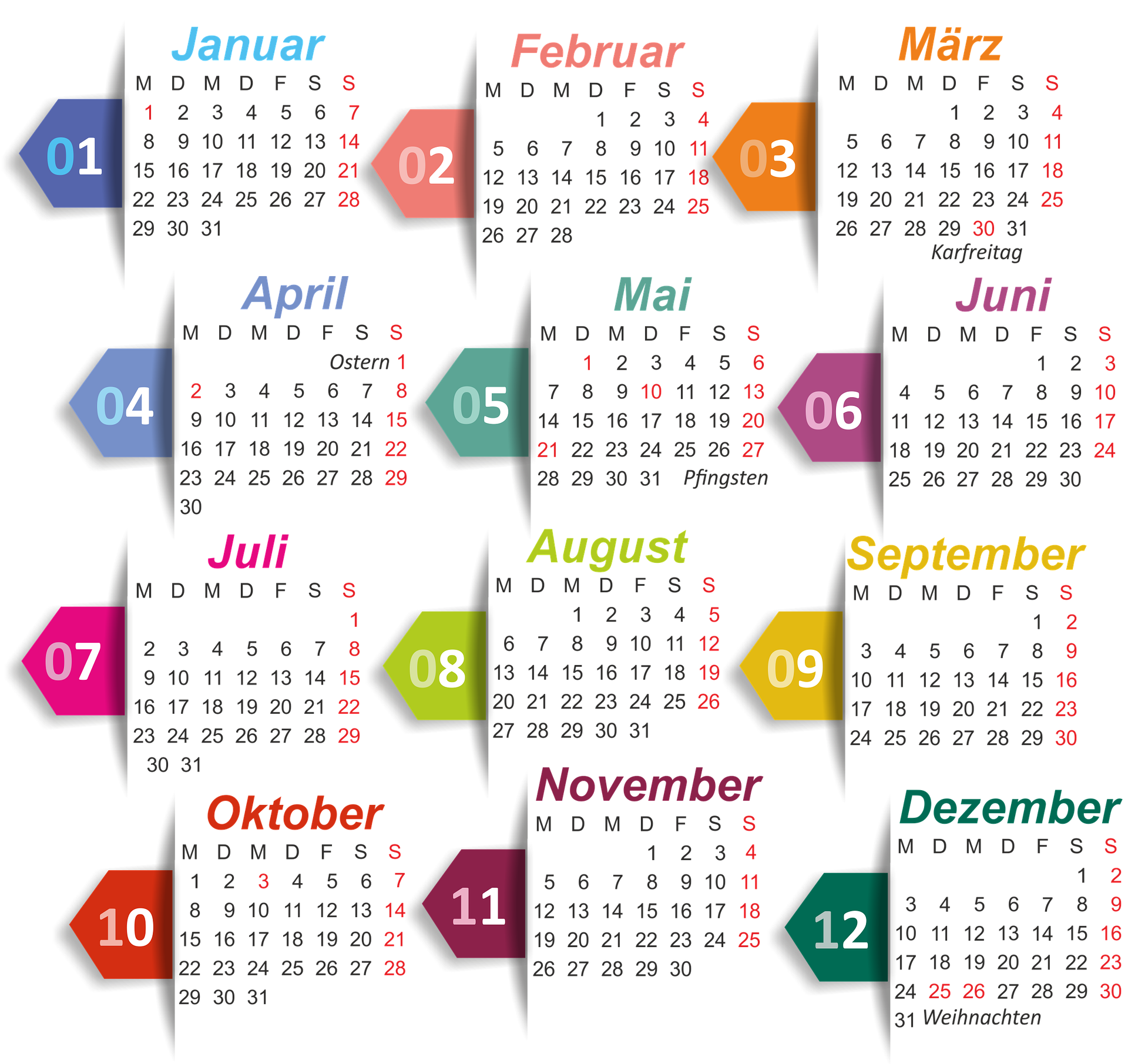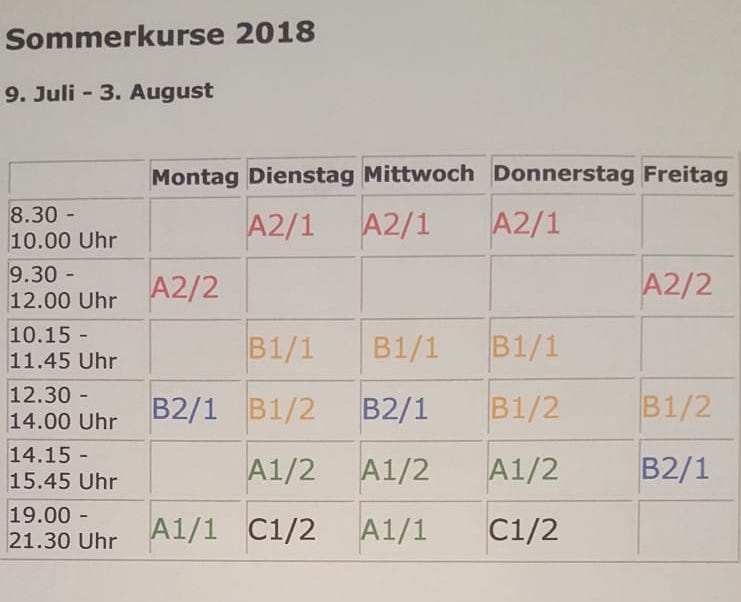In dieser Lektion
Lesen

Grüß Gott, ich heiße Yasmin. Ich bin 21 Jahre alt und komme aus München. Ich studiere an der Ludwig-Maximilians-Universität München. Mein Hauptfach ist Politikwissenschaft und mein Nebenfach ist Wirtschaftswissenschaft. Dieses Semester belege ich Kurse in Mathematik, Nachhaltigkeit und Wirtschaft, internationale Politik und Makroökonomie. Mein Lieblingskurs ist Mathematik, weil ich Statistik interessant und praktisch finde.
Mein bester Freund heißt Timo. Er ist 23 Jahre alt und studiert deutsche Literatur, das heißt, Germanistik. Ich kenne ihn von der Uni, und er wohnt auch in München. Mit Timo gehe ich gern ins Kino oder ins Konzert, denn er weiss viel über Musik und Film. Sein Nebenfach ist Kommunikationswissenschaft. Wir diskutieren oft über Filme und Bücher als auch über Politik. Timo belegt einen Kurs über politische Theorie dieses Semester. Er findet ihn sehr schwer aber auch interessant. Das ist sein Lieblingskurs.
Arbeit mit dem Lesen
Wortschatz
Studienfächer
Was kann man alles studieren? Take a look at this list and figure out what these subjects are using your knowledge of English and/or another language. Look up any terms you are unfamiliar with, or check with your instructor.
die Psychologie, die Biologie, die Chemie, die Physik, die Mathematik, die Geologie, die Geographie, die Geschichte, die Informatik, die Musik, die Kunst, die Kunstgeschichte, die Literatur, die Fremdsprache, die Linguistik, die Politikwissenschaft, die Wirtschaftswissenschaft, internationale Beziehungen, die Philosophie, die Soziologie.
Was studiere ich?
Look at the description of a student’s interests and decide which course of study best reflects those interests.
Sprechen
Interview
Was studierst du? Welche Kurse belegst du jetzt? Was ist dein Lieblingskurs?
Umfrage
Stand up and ask your fellow students about which courses they are currently taking. Try to find someone taking a course in each of these areas and jot down their names so you can report back to the entire class.
- Literaturwissenschaft
- Biologie
- Kunst
- Chemie
- Geschichte
- Physik
- Wirtschaftwissenschaft
- Politikwissenschaft
- Mathematik
- Musik
- Informatik
- Film- und Medienwissenschaft
Kultur
Wissenschaft
What’s up with this term Wissenschaft ? It seems to come at the end of so many different subjects. Well, die Wissenschaft means science in the broadest sense, but it gets used in German to describe the systematic study of a subject. Thus, if you study literature, you might be in Literaturwissenschaft; if you’re interested in supply and demand, you might be in Wirtschaftswissenschaft; and if you can both analyze and create a film, you might be in Filmwissenschaft or Medienwissenschaft. Other common subjects that include the suffix “-wissenschaft” include: Musikwissenschaft, Kommunikationswissenschaft, Kulturwissenschaft, Religionswissenschaft, Theaterwissenschaft, and Sprachwissenschaft. As you can see from this list, knowing the word Wissenschaft allows you to understand a variety of different subjects of study.
English speakers tend to use the term “science” to think about a specific series of subjects, like biology, chemistry, physics, and geology. Those areas would be translated as Naturwissenschaften in German: “the natural sciences.” So don’t be fooled by the Wissenschaft moniker, because it doesn’t mean science in the same way we use it in English. But it is a great word to use to indicate a formal system of study and to help you decipher a list of majors and minors or course offerings. Check out this link to the list of areas of study at the Ludwig-Maximilians-Universität in München and see what you notice. How many areas of study can you recognize? Which majors are not offered at your university or college? And which are?
Strukturen

Days of the Week
The German days of the week are:
Montag
Dienstag
Mittwoch
Donnerstag
Freitag
Samstag or Sonnabend
Sonntag
Every day of the week is masculine. Note, too, that it’s der Tag (the day).
If you’re discussing which courses you are taking, then it might be helpful for you to express when you have which course. You can use the word am to express something occurring on a specific day: am Montag (on Monday). Similar to English, you can also use the name of the day with an -s on the end to indicate that you do something every Monday: montags (Mondays). Note that in this latter case, the name of the day is not capitalized.
Sprechen
Interview: Welche Kurse hast du? An welchem Tag hast du diese Kurse?
Beispiel: Am Montag habe ich Deutsch. Dienstags habe ich Mathematik.
Umfrage: Wann machst du ein Hobby? For each day of the week, find a fellow student who does a free-time activity on that day. Jot down some notes to report back to the class or to write up your results.
Beispiel: Montags spielt Hanna Basketball. Am Dienstag liest David.

Rollenspiel: You and a fellow student want to enroll in a German language course at the Universität Wien during the summer session. Look at the schedule of courses to the left and discuss which options are the best and on which days the courses meet:
if you are in level A
if you are in level B
if you are in level C